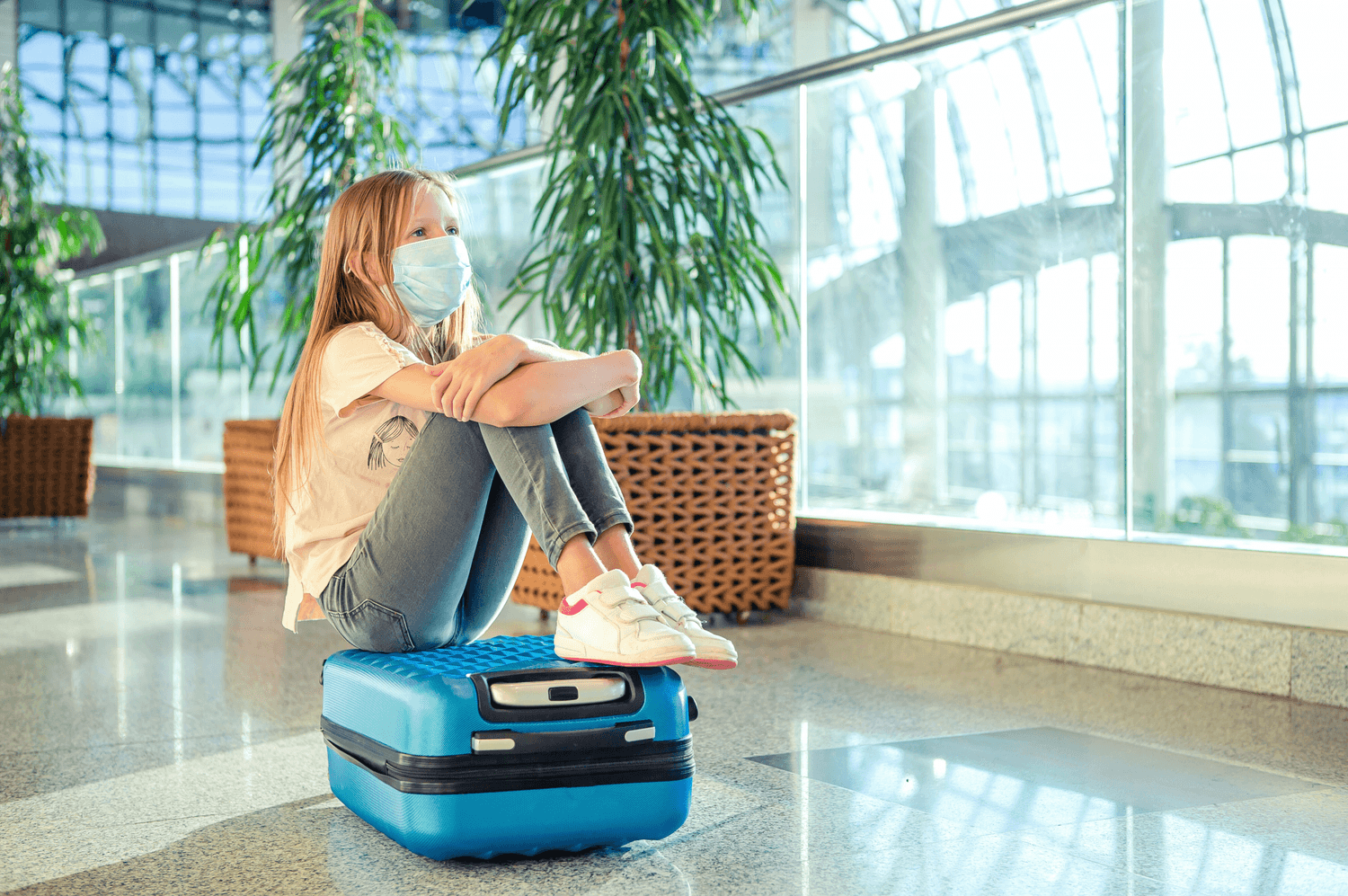Whether you’re traveling over the hills and through the woods or just somewhere along I-70 to get to grandma’s house for the holidays, traveling with kids isn’t easy.
The younger the kids, the bigger the challenges that come with traveling long distances – especially when they’re already keyed up and in high spirits due to the holiday season. Nobody wants to arrive at their holiday destination worn out, frustrated, and stressed, and the key to avoiding problems is good planning.
How do you make your holiday trip as smooth and easy as possible? We’ve got a plan, and we’re ready to share it. Use these tips:
Before Your Trip Begins
What you do before the trip even starts can be as critical as the trip itself. There’s no such thing as just throwing a few things in a bag and “traveling light” when kids are involved. With that in mind:
1. Talk to the kids about the upcoming travel plans.
You can tailor your conversation according to their ages and experiences. Telling your preschooler that a trip will take 10 hours probably won’t compute, for example, but you can explain that the trip is going to be “long” and that they’ll need to be patient.
If you’re flying, talk about things they may find scary (like security checkpoints) and explain what they can expect to happen. Reassure them that you’ll be right there, and you won’t let anything happen to them. (A little advanced warning can help prevent a terrified child from going into a meltdown and a lot of tears later.)
2. Let the kids help with the packing.
That sounds like a nightmare, but it really isn’t. You can still do the majority of the planning, but let your kids have a little control over what they bring along. That sense of control can help alleviate their fears over the trip and keep other negative feelings at bay.
For example, you can offer to let your son pick his travel outfit (knowing that if it doesn’t match, it doesn’t really matter) or have your daughter pick the accessory items for her holiday dress. Let all your kids pick their own comfort items and toys (within reason) for the journey. Crayons, video games (with headphones), books and other “self-entertainment” items are best.
3. Pack plenty of snacks.
You probably get cranky when you’re hungry, and so will the kids – and you can’t always count on food to be readily available when you’re traveling.
Fill a small, easy-to-carry bag with travel-proof snacks, like fruit chews, crackers and cheese, bananas, granola bars, and bottles of water – or whatever you think your kids will find appealing. Don’t bring anything that’s likely to make a big mess or require a spoon, and remember to pack a small plastic bag that you can use for trash. It’s also a good idea to tuck a package of wet wipes into the bag, to clean sticky fingers and faces.
4. Ask about accommodations.
The odds are high that Grandma can’t wait to see the kids – but her house may not exactly be child-friendly. If your children are small, remind their grandparents that they should put medications out of reach and tuck away any highly breakable objects before you get there.
Similarly, if there are pets where you’re going, ask if your hosts can tuck the dog or cat into another room while you’re there to prevent any injuries (to either your child or the animal).
5. Get adequate rest.
Try to pace your preparations so that you’re not still trying to get things packed or organized at midnight the night before. If you’re tired, you’re going to find it harder to focus on your trip and harder to cope with the demands of your children.
Ideally, you should either load the car the night before or have all the bags ready by the door before you go to bed. That way, you can get up, feed everybody breakfast, dress and go with a minimum of fuss.
Once Your Trip Begins
Whether you’re traveling by air or hitting the open road, much of our advice to parents remains the same:
- Dress in layers: Planes and cars alike can get too warm or too cold, and your kids are more likely to get fussy if they’re uncomfortable (and so are you). Make sure that it’s easy to peel off a few layers or add them back on, as the need arises.
- Head out early: Schedule extra travel time into your trip, just in case. It’s better to arrive at the airport a little too early than have to make a mad dash for the gate after you get lost in the parking lot. If you’re traveling by car, you need to anticipate potential delays due to roadwork, accidents or unscheduled bathroom breaks.
- Use pull-ups: If your kids are still very young, you may want to resort to pull-ups for the trip. A bathroom may not be convenient when it’s most needed.
- Make traveling part of the fun: Don’t be in a rush to bring out the toys or snacks. The trip itself can be a huge source of entertainment for the kids. Talk about the sights as you go, look for road signs together or show the kids how to play the time-honored travel game of “I Spy” to keep them interested in the trip as long as possible. That way, when they get tired of the scenery, the toys they brought along will seem even more appealing.
Finally, above all: Be gentle with yourself. If you set your expectations for the trip too high, you and your children can end up feeling overwhelmed and disappointed. This is one time where it really is best to keep your focus on the destination, not just the journey.




